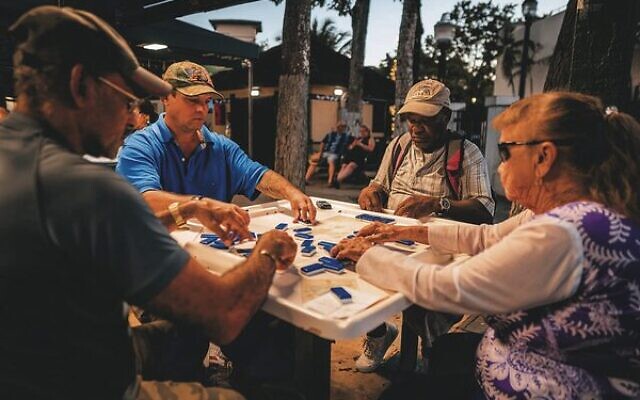Sephardi Jews from Baghdad to Sydney
The film's title represents the mishmash of culture, Asian and Iraqi, in which Saul grew up.
Documentary filmmaker Carolyn Saul’s latest film Mahjong & Mahashas recently debuted at JIFF.
Saul describes her film as “a window into a culture that is a minority Jewish group within the Jewish people”. It is a cultural and migration story about her family who are descendants of Baghdadi Jews, who identify as Sephardi.
Saul’s background is in archival film production and research. “I’ve always been very interested in documenting things and gathering people’s stories,” she said. “Over the years, I gathered a lot of interviews and footage and wove it all together to make the film.
“This is a different kind of Diaspora story because a lot of them left Baghdad around the mid to late 1800s as traders, but also due to an uprising from the Arab community where they started to feel it was time to move on.”
Her ancestors travelled and finally settled in Singapore.
“A lot of my family went via India to Singapore, while others went through Burma [Myanmar]and Shanghai.” In the mid-1950s and ’60s, there were about 5000 Jews in Singapore.
The film’s title represents the mishmash of culture, Asian and Iraqi, in which Saul grew up.
Mahjong is a tile-based game that was developed in the 19th century in China and which has spread throughout the world; mahasha is a very iconic Iraqi method of cooking vegetables such as tomatoes, onions and vine leaves stuffed with rice, herbs and spices.
Saul created Mahjong & Mahashas combining films of her family who live in Sydney with archival footage from Singapore. Saul’s mother’s grandfather, Eliyahu Shalom, was brought from Baghdad to be the first rabbi in the Singapore synagogue where he served for 16 years until the start of WWII. Saul said, “That’s part of the inspiration that fuelled my filming. And then I’ve got this other side of the story, which partly had one foot in Singapore and one foot in Malaysia, which is my dad’s side of the family, which I couldn’t fully cover in the film.”
When many of the Sephardi community migrated to Sydney from Singapore they didn’t have a synagogue. The tradition of their services and prayers is very different to Ashkenazi Judaism, so the community banded together and built a Sephardi synagogue in the early ’60s. Rabbi Michael Chriqui has recently celebrated his 30th anniversary. Saul said, “There is a decent-sized congregation and young people are coming through as well.”
Mahjong & Mahashas was a passion project. Saul produced it, and her musician husband Phil composed and played the soundtrack, both without pay.
“It was a tough labour of love. I’m hoping it will make it into some international Jewish film festivals [overseas], where there might be a philanthropist or two, with the same ancestral background, interested in supporting a one-hour version.”


comments